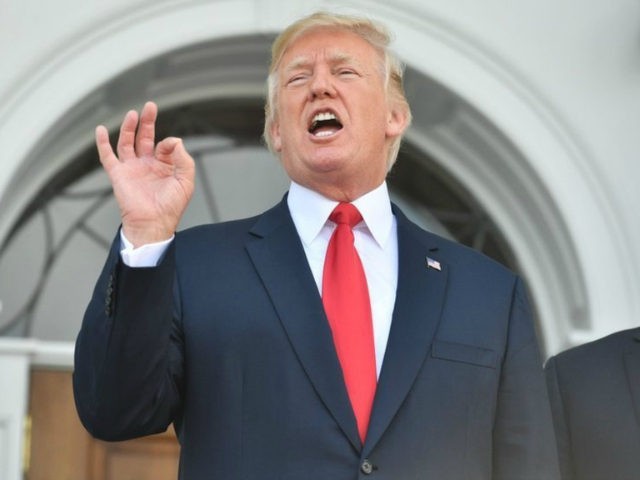The mainstream media are aghast at President Donald Trump’s comments on North Korea as he promises “fire and fury” and warns that American military solutions are “locked and loaded.”
The political elite, and the foreign policy establishment, oscillate between bitter scorn and sheer panic at his tactics. But one does not have to be convinced of Trump’s rhetorical genius to note that he has already re-framed the conflict in a way that is advantageous to the U.S.
First, Trump has radically changed the costs of a potential conflict, for both sides. The dominant paradigm of nuclear face-offs is mutually assured destruction (MAD), which is why the Soviet Union and the U.S. never attacked each other during the Cold War. Most of the discussion about North Korea has followed the same pattern, because of the threat of ICBMs to the U.S. mainland. After Trump threatened to annihilate North Korea, however, Kim Jong-un threatened to attack … Guam. Trump doubled down, indicating that a North Korean attack on Guam would trigger an attack against the regime. That shifted the costs of a war radically in our favor and against theirs.
Second, it is noteworthy that the North Korean threat to Guam did not refer to nuclear weapons, but rather hinted at conventional missile strikes. There is no way to know for sure that the regime would not use nuclear weapons, if indeed the North Koreans can miniaturize them, but a conventional attack is certainly less serious than a nuclear one. In threatening the most violent possible attack, Trump elicited a response that is significantly less threatening.
Third, Trump diverted attention away from North Korea’s more vulnerable neighbors, South Korea and Japan. Of course the North Koreans could attack them if the U.S. launched a war. But instead of talking about the potential deaths of millions of people in densely-populated areas, the world is now talking about the qualms felt by a few people on a remote island. That makes Trump’s words look less scary, and eases pressure for the U.S. to back down.
Update: Fourth, the Chinese government is now indicating that it will not defend North Korea from a retaliatory strike if the regime attacks the U.S. (which includes Guam). The Global Times, which reflects the view of the Chinese government, indicated that China would stop the U.S. from trying to overthrow the North Korean regime but would not defend North Korea if it struck the U.S. first. That is a significant change from the status quo ante.
The situation remains unstable, and could escalate. But Trump’s rhetoric is not, as former Obama adviser Susan Rice claims, the problem. In fact, it is part of the solution. It has, at the very least, restored some of our deterrence.
Joel B. Pollak is Senior Editor-at-Large at Breitbart News. He was named one of the “most influential” people in news media in 2016. He is the co-author of How Trump Won: The Inside Story of a Revolution, is available from Regnery. Follow him on Twitter at @joelpollak.

COMMENTS
Please let us know if you're having issues with commenting.